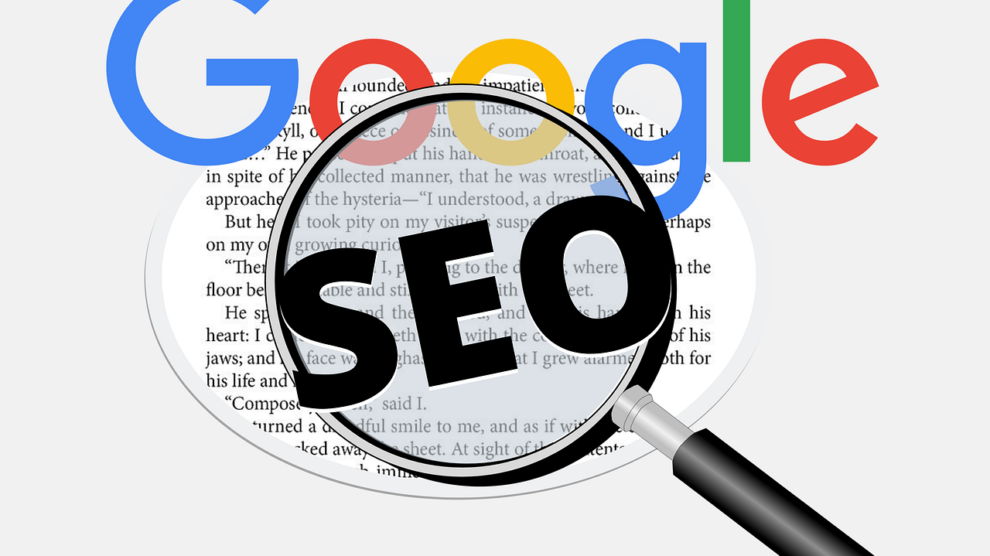Looking at the present trajectory of digital commercialization, one thing is sure- there is a strong demand for SEO worldwide. Owing to this increasing demand, more and more opportunities in SEO are emerging. Experts say SEO as a discipline and market are expanding widely- indicating a steep rise of up to $1.6 billion by the next five years.
To put it in simple terms, SEO has transitioned from being a siloed practice to a significant revenue channel. This channel is fast becoming vital in content marketing practices and overall digital strategies.
If you wish to use SEO effectively, you must always be aware of the shifting marketing conditions to evolving search engines and customer priorities. This is why the technique is undergoing constant tweaks and changes to better suit industrial needs.
However, remember that it’s always a challenge to maintain a thorough understanding of the most successful optimization techniques. Therefore, you may face difficulties if you implement the steps inappropriately.
1. Misusing Keywords
Unless you are a novice in this subject, you are already well aware that keywords play a crucial role in any SEO strategy. They effectively guide the users to find your content when they type relevant terms into the search engines. However, it is necessary to mention that outdated and ineffective SEO keyword tactics can yield unsatisfactory results, damaging your site’s rankings and user experience.
For instance, you may use “keyword stuffing” to rank particular phrases quickly. This will necessitate throwing as many keywords as possible into your content- regardless of their relevance or need. But search engines can now pick out this practice and penalize your website for it.
You may also remember that exclusively structuring your content around the keywords is an outdated SEO tactic. According to experts, this method often fails to recognize the search intent and struggles to retain readers on your site for long.
Meta search engines today emphasize search intent these days, more so than ever. You may ideally want to implement relevant keywords occasionally and naturally throughout your piece.
2. Not Catering to Your Audience
Almost everybody today relies on Google to answer their endless queries. Therefore, you must ensure that your posts provide relevant and effective solutions for your target audience if you wish to rank highly on Google. Many bloggers today produce content as per their competence and preference while completely dismissing the audience.
You must make a conscious effort to break into the headspace of your audience if you aim to perform well in search engine results. Focusing on what your audience wants and providing relevant answers to their questions will help you to score big on Google.
3. Failing to Improve Page Titles
More and more people are trying to optimize their content’s title to rank high on SEO. This is essential since unique and relevant page titles increase your site’s traffic. This can directly benefit you by pushing your content in upper positions. You may ideally optimize page titles for SEO since both audience and Google will better understand your content.
Considering that your website has plenty of content, you will require diverse and appropriate titles for each page to allow comprehensive navigation for the audience. Failing to do so will result in your content not appearing on search engines.
4. Not Updating / Deleting Irrelevant Content
You may also realize that SEO strategies do not prioritize your new content exclusively. To break it down further, Google is shifting its focus to sitewide content quality. Therefore, your website carries underwhelming quality or outdated content that will negatively influence your SEO efforts – even if your new posts are good.
This is why you must develop a habit of reviewing your older content consistently. You may ideally begin by concentrating on your most aged content and posts, which has little to no traffic. Going by the books, you may want to salvage old content. Your maximum effort should be improving and updating it to boost its quality.
Lastly, do not hesitate to delete the entire content if the post is not salvageable. Approach this step by giving your website the necessary trim for growth.
5. Not Using H Tags Appropriately
They are no longer a side add-on for your SEO tactics in 2023- H tags have fast become a vital cog of good SEO. Therefore, you must make it a point to implement H tags for all your headings. Moreover, subheadings are now delivering superior results due to their efficiency in reading web pages.
Subheadings knock down a complex text wall and help readers determine if your post caters to their interests or problem. Your audience can expect smooth and quick accessibility if you involve H tags and subheadings in your posts. Furthermore, they also assist Google in identifying the questions your posts answers.
6. Publishing Non-Original Content
Next in line with common SEO mistakes is related to the quality and relevance of your content. While content plagiarism was a common phenomenon with easy getaways, powerful search engines today penalize this approach. The online industry discourages duplicating or plagiarising content as it is widely considered a spammy practice.
Matching and thin content are simply ineffective today on the internet. Ideally, you should produce original and relevant content instead of ripping off a copy or giving a new spin to existing content. This is how you can keep your website safe from downgrading and relegating to the back of search results.
7. Missing Quality Links
Ideally, it would be best to comprehend the true potential of external links in the content to get the best from SEO. This is where you must realize that quality truly matters more than its quantity. Therefore, you must integrate relevant external links to your content.
Furthermore, you may also find it convenient to link back to websites that initially used you as an external link. This will encourage more traffic in the future. Another counterproductive practice is implementing ineffective anchor text. You may altogether avoid such disciplines since it wastes precious SEO opportunities.
Anchor text tells the reader and search bots about the core theme and subject of the link. So, refrain from using the phrase “click here” as an anchor text. You may explore a variety of anchor texts instead, as employing the exact text repeatedly can be seen as spammy.
8. Not Investing in a Mobile-Friendly Experience
SEO doesn’t only involve content and keywords. Therefore, you must also concentrate on other aspects of your website- its quality and its performance on mobile devices. Google can determine the mobile-friendliness of your website- since it employs mobile-first indexing.
You may be in for an underwhelming search engine ranking if you do not provide a mobile-friendly experience for your audience. Moreover, you may also prioritize load speed. Most search engines recognize that as well when ranking your content. A slow website could lead to negligible positions on the SERPs.
Summary
SEO plays a crucial role in your content marketing strategy today. However, the most experienced individuals have the potential to make some common SEO mistakes. Your SEO efforts can significantly alter or influence the search engine algorithm updates.
You may look to understand the challenges others have experienced. This will prevent you from unknowingly wasting your time on lousy SEO tactics.





